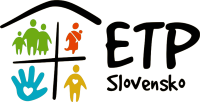ERASMUS
„Strengthening Thinking and Learning Skills“ is a collective project of seven participating organizations that have a shared mission – to reduce the disparities in learning outcomes of disadvantaged pupils, schoolchildren who do not achieve the same results as their peers, or pupils with learning disabilities through the introduction of more effective teaching methods. Organizations participating in the project work with a wide range of clients – from children coming from marginalized Roma communities (ETP Slovakia – Center for Sustainable Development), through children with special needs (Feuerstein Center in the Netherlands, Inclusive School Cluj, Romania), to children who are below average results in mainstream schools (Charlie-Karlín, Czech Republic) as well as organizations dedicated to talented children (National Center for Special Needs Education and Psychology, Lithuania) and children in mainstream schools (Czech Republic, Lithuania).
This common project came from the knowledge that many children who have functional and / or educational difficulties, children who come from a culturally different or deficient socio-economic environment, often experience barriers that obstruct them from learning. Obstacles have their origin in the attitudes or (inadequate) competences of teachers, peers, parents, (ineffective) assistance, etc.
A practical problem occurs every time a teacher enters a cognitively heterogeneous class in order to teach pupils knowledge and academic skills as well as the competences necessary for successful formal education – including transversal cognitive development. These are secondary to the development of cognitive skills or executive functions, such as the ability to maintain sustained attention, abandoning impulsive behavior, expanding computing memory, comparing and using advanced vocabulary.
The project will create teaching materials and training courses for teachers to use such approaches in their work, which are aimed to develope transversal cognitive skills, thereby helping pupils to develope better thinking strategies.
The project will link the FIE program, which content is cross-sectional oriented with a diverse range of lessons, as well as a psychological assessment with a school evaluation enriched with dynamic principles. The project is aimed at shaping the environment in which the pupil is educated. It supports activities that help coaching schools towards schooling and responsiveness to all children, including those who have some difficulties.
The project will organize a series of expert meetings, trainings and workshops to share research results, share new approaches, gather and extend international experiences. An educational course is developed and tested, articles, reports, publications and DVDs are published to disseminate knowledge about these innovative approaches.
The aim of the project is to show that pupils with difficulties can be integrated into mainstream schools and society as well, if the national curriculum of common education was complemented by an innovative approach of mediated learning, which, as it seeks, tends to remedy the limitations of disadvantaged students in an appropriate way.


